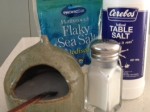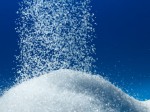-
Eating well, protecting your body with better nutrition now can help you to channel your energy into the things in life that really matter to you. Find out how a nutritional assessment can help you reach your goals... Read more »
-
In recent years, the ‘diet mentality’ has been criticised, coupled with the new movement toward body positivity, mindfulness and ‘self-care’. Does this approach work for everyone? What other tools might we need to consider? Read more »
-
Bone is a living, growing tissue that is forever changing but needs to be fed. Easily taken for granted, it's not until we stub our toe or suffer a fracture that we register the importance of bone to our life and freedom. Learn more.. Read more »
-
Are you needing to lose or gain weight, control blood pressure, reduce insulin resistance, diabetes, PCOS or heart disease? Dietitians recommend that controlling rather than cutting your carbos, can provide many health benefits. Read more »
-
Most of us take our liver for granted until something goes wrong. Learn how amazing this organ is at keeping the systems in our body running each day. Understand the risk factors to liver health and where to get help if needed. Read more »
-
How do you learn & where does your nutrition information come from? How much do you eat to stay well & to fund changes in activity levels? What beliefs & attitudes prevent you from making better food choices? Learn more Read more »
-
Emotional eating isn't an eating disorder. It is a dyfunctional relationship with food. Associated with depression, anxiety and binge eating. It is highly addictive, causes ill health, needs to be taken seriously. Here are tips to help. Read more »
-
We may feel surprised when a well known athlete dies of heart disease, but this is a disease that affects us all. While the NZ Heart Foundation offers community guidance and education, health promotion comes from within Read more »
-
Energy deficiency is more common than you may think and can be found in our hospitals, schools and kindergartens, rest homes and on our sports fields. It can affect over and underweight people. Are you at risk? Read more »
-
Veganism can be a very healthy lifestyle but there are some important things to know about before deciding that veganism is going to be right for you and will provide sufficient energy to fulfil the life goals you have in mind Read more »
-
Recent research has highlighted the importance of vitamin D to respiratory health with those who are deficient being 5 times more likely to contract Covid-19. It is important for children, athletes and the elderly. Find out why? Read more »
-
Although science is constantly evolving, generating new recommendations to improve our health, for many people their eating habits are based on things other than their longevity so are guidelines still relevant today? Read more »
-
New diets pop up every day. Who should we believe? NZ Broadcasting student Louise Trenouth, on assignment, puts questions to Lea in an effort to understand Fad Dieting. Read more »
-
The plant-based diet is widening the range of foods on our supermarket shelves. How do they compare with standard meat and dairy products for nutrition value? Find out.. Read more »
-
The Healthy at Every Size (HAES) paradigm, focusing on body acceptance and healthy lifestyle changes, is gaining a lot of media attention as a possible way of curbing our escalating obesity stats. Find out more. Read more »
-
Everyday we measure things such as the time, money, distance, our cholesterol, petrol etc yet many people fear measuring themselves Read more »
-
Loneliness and social isolation are being increasingly seen as risk factors to good physical and mental health. Learn how to stay connected with others and improve your sense of well being in 5 easy steps. Read more »
-
The power of food can change your life and Dietitians can help you unlock your potential through food. Read more »
-
Weight control is the key to better health but this can be hard when Christmas often leads to overconsumption. Find out where to start. Read more »
-
Dietitians are the most credible source of nutrition and food knowledge when you need to apply it to health and disease in NZ. Read more »
-
If you are struggling to lose weight or lower your cholesterol then taking a closer look at your intake of discretionary foods can improve your results.
Read more »
-
It can be so easy to snip the top off a packet of flavouring when cooking. But if we really want to reduce the salt, fat and sugar in our diet natural flavours are best. Find out how. Read more »
-
Polycystic ovarian syndrome (PCOS) is a common cause of infertility in 6-20% of women of reproductive age causing a range of hormonal and metabolic effects that can impact on a women's physical and mental health. Read more »
-
Is garnishing getting out of hand? Find out how much energy those "add ons" really do add. Read more »
-
Lea Stening shares 7 common myths about weight loss and concludes that "you actually need to eat quite a lot of food in order to lose weight". Read more »
-
If playing sport or exercising, understanding the GI can help you to select foods that will provide optimal energy at key stages of activity for better performance.
Read more »
-
In a bid to reduce the intake of processed foods many food manufacturers are modifying their products to meet new food guidelines particularly regarding salt. Find out if you are still getting too much? Read more »
-
As the popularity of gluten- free diets grow we need to question whether in fact it is a healthy option for any of us and if not how can we make it so? Read more »
-
Is dieting still fun if it ages you? Find out if your diet ticks all the boxes for your better health and performance. Read more »
-
When couples move in together they set in motion changes to their long-term health. While there are many health benefits of living together managing weight may need extra care and attention Read more »
-
While some supplements are well recognised as being useful to performance others can lead to positive drug testing and disqualification as well as endanger long-term health. Read more »
-
A child can build their confidence and self esteem if monitoring their growth rate is accompanied by positive health messages about weight, fitness and energy to achieve in life. Read more »
-
Stress fractures are not just a problem for athletes who overtrain. They can affect anybody as they also relate to lifestyle and nutrition choices. Find out if you at risk. Read more »
-
Distance running and “fun runs” (and walks) of varying length and degree of difficulty are becoming popular, attracting family and community groups; recreational and elite participants. Paying attention to sports nutrition can improve an athletes performance and enjoyment of these events Read more »
-
For busy people, who might rather drink than chew their fruits and vegetables, the juicing trend sounds like a "gods send". What possible disadvantages could there be to health? Find out the pros and cons of this new diet craze. Read more »
-
Spending hours behind the wheel is a huge recipe for weight gain and increased risks to our health. Driving is something that affects us all. Read more »
-
Gaining an understanding of the many factors contributing to a sense of fullness can provide some very powerful tools for those seeking to lose or control body weight and find more energy for life! Read more »
-
Coconut oil was once associated with tanning. Something young people coated themselves with before lying out in the sun “to bake”. Today coconut products are being heralded by many as the new “wonder food" that can cure many ailments. We take a look at some of these claims.
Read more »
-
Although athletes may benefit from an exhilarating endorphin rush on exertion that elevates their mood and suppresses feelings of pain it will not stop them from experiencing, at times, anxiety and bouts of depression just like the rest of us. Nutrition is one treatment option that can speed recovery. Read more »
-
After years of encouraging a low fat diet with some success (a decline in heart disease and some forms of cancer) attention is now focusing on sugar as a possible reason for our weight and diabetic problems. Read more »
-
Research shows that a diet high in fibre can reduce the risk of developing diseases such as type 2 diabetes, coronary heart disease, bowel and breast cancer, gallstones, diverticular disease and weight gain. It also seems that some fibres are better than others. Read more »
-
Cold injuries and illness occur in a wide range of physical activities. An understanding of the importance of sports nutrition and planning appropriate meals and snacks can offer some protection and may also improve overall performance Read more »
-
Menopause is a natural biological process women pass through and just like puberty it is not a medical illness. A woman's experience of Menopause is very individual and so there is no one "cure" for the range of symptoms that may be experienced. Read more »
-
The French diet is relatively high in saturated fat and yet in 2012 the French have a low incidence of obesity (11% compared to 28% in New Zealand). Why is this? Read more »
-
If you are thinking of cutting fat out of your diet stop right now. Fat is important for nerve and cellular function but choosing the right “type” of fat is what matters most to our long term health. Read more »
-
Fat carries more energy than other macro nutrients (9kcals/37kJ/g compared to 7kcal/29kJ/g for alcohol and 4kcal/17kJ/g for protein and carbohydrate respectively). So with so much energy to offer does eating more improve performance?
Read more »
-
Did you know that in 2012 around 21% of New Zealander’s weekly food expenditure was spent on eating out and takeaways? Read more »
-
Some people find it hard to control snacking and are continuously thinking about food. They may find themselves constantly picking, stock piling foods in drawers and cupboards at home and work. Read more »
-
Despite the apparently healthier lifestyle vegetarian athletes (like anybody) can still become overweight, hungry, bloated and suffering from multiple nutrient deficiencies. Read more »
-
Do you ever suffer from” runners diarrhoea”, bouts of anxiety , fatigue, abdominal pain or gas when facing competition? Read more »
-
Whether you are swimming for fun or competition this sport has many health benefits that can be enhanced with good nutrition. Knowing what to eat and when can also greatly improve your enjoyment of the sport as well as your level of performance.
Read more »
-
The quality, appearance and growth of our nails often reflect the state of our general health and the adequacy of some essential nutrients in our diet.
Read more »
-
The stress of competition, the sun and wind, sweat, chaffing and high sugar levels are just some of the things that can aggravate the skin conditions of athletes and very active people. Read more »
-
When family members are sick or hospitalised it can be very challenging to find the time to exercise and maintain a healthy diet for yourself. Particularly if you are working, caring for children, or trying to complete a course of study.
Read more »
-
An eating disorder can affect anyone at any age, any sport, any background and any gender. The symptoms may build slowly well before the illness becomes evident. Often it is an athletes support team such as parents, friends, team mates and coaches that pick up on the symptoms and can prevent the disorder from ruining the athletes sporting career. Read more »
-
The human body is hugely resilient, constantly strengthening muscles and remodeling bones and joints to take up new loads. However as we age and weight is gained and lost, metabolic changes can take place that alter this remodeling process and can set us on a path to failing mobility and independence. Read more »
-
Overweight and obese women are a greater risk of developing complications endangering their own health during pregnancy and are also more likely to bare children who are overweight themselves Read more »
-
Many workers use enough energy and essential nutrients each day to power a marathon. If not replaced then a lack of these key nutrients can lead to fatigue, accidents and injury that can affect their long-term health and mobility. Read more »
-
Athletes protect your smile and your wallet as painful tooth erosion is not only expensive it can also rob your training time and performance. Read more »
-
Few children escape teething without some discomfort. Rosy flushed cheeks, a runny nose, irritable behavior, disturbed sleep and bowel function are all hallmarks of tooth eruption Read more »
 To provide additional energy needed during exercise, the oxygen used in the exercising muscles increase by about 10-20%.
To provide additional energy needed during exercise, the oxygen used in the exercising muscles increase by about 10-20%.






























































Leave a Reply